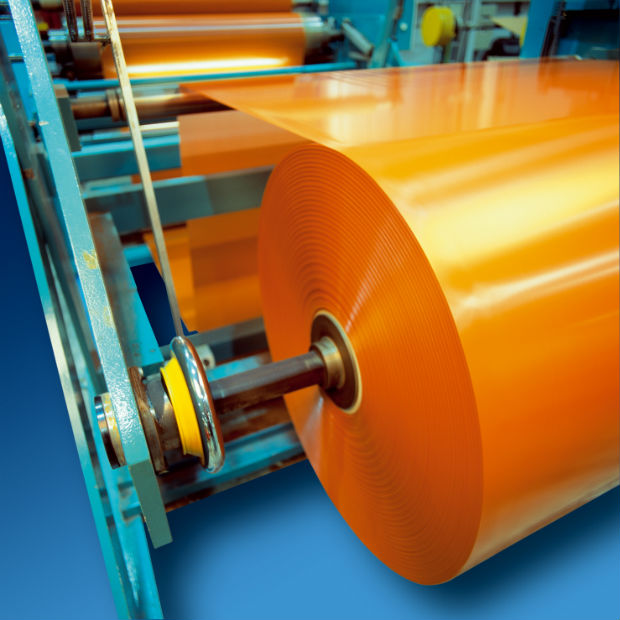
Lenzing continues to invest in Modal
In first half of 2013 Lenzing has generated earnings in line with the company’s expectations, but considerably below the first half of 2012. Consolidated sales declined by 6.8% in the first half of 2013 to EUR 989.9 million. Furthermore, there was a loss of external sales of about EUR 42.5 million at the Paskov pulp plant. EBITDA amounted to EUR 162.0 million, down 16.3% from the first half of 2012. The EBITDA margin was 16.4% in contrast to the prior year figure of 18.2%. Earnings before interest and tax (EBIT) in the first half-year totalled EUR 103 million, a decrease of 27%. The disposal of the Business Unit Plastics by the Lenzing Group resulted in a cash inflow of EUR 61.7 million and a gain on disposal before taxes of EUR 25.9 million at the half-year reporting date.

21st August 2013
Innovation in Textiles
|
Lenzing
In first half of 2013 Lenzing has generated earnings in line with the company’s expectations, but considerably below the first half of 2012. Consolidated sales declined by 6.8% in the first half of 2013 to EUR 989.9 million. Furthermore, there was a loss of external sales of about EUR 42.5 million at the Paskov pulp plant.
EBITDA amounted to EUR 162.0 million, down 16.3% from the first half of 2012. The EBITDA margin was 16.4% in contrast to the prior year figure of 18.2%. Earnings before interest and tax (EBIT) in the first half-year totalled EUR 103 million, a decrease of 27%.

The disposal of the Business Unit Plastics by the Lenzing Group resulted in a cash inflow of EUR 61.7 million and a gain on disposal before taxes of EUR 25.9 million at the half-year reporting date.
In the first half-year 2013, the market was characterised by ongoing high inventories of cotton and surplus production capacities for viscose fibres in China, the most important sales market, and thus globally declining prices for man-made cellulose fibres.
“We have reacted and already initiated a cost optimisation programme at the beginning of the year. In addition, we have adjusted our short and medium term strategy to the changed market environment. We will more strongly focus on our specialty fibres Tencel and Modal in the future. Viscose fibres will remain an important pillar of our business, but further expansion projects for viscose fibres will only be implemented if correspondingly high profitability is achieved,” commented Lenzing’s Chief Executive Officer Peter Untersperger.
Current large-scale strategic investments such as the new Tencel production plant located at the Lenzing site will continue as planned. Moreover, Lenzing will rapidly press ahead with scaling Tencel to ensure more widespread use.
“The excelLENZ programme launched at the beginning of 2013 is bearing fruit. We succeeded in generating savings of EUR 16 million in the first half year,” said Lenzing’s Chief Financial Officer Thomas G. Winkler.

Investments in intangible assets and property, plant and equipment totalled EUR 134.4 million in the first half of 2013, compared to EUR 130 million in the first six months of 2012. The focal point of the new investments was almost exclusively the construction of the new Tencel production plant at the Lenzing site.
Lenzing successfully increased fibre production and shipment volumes in its core Segment Fibres in the first half of 2013. The company achieved a new record level of fibre sales, which amounted to 438,000 tons in the first half of 2013.
The Business Unit Textile Fibres carried out a large number of measures in the first half year 2013, designed to promote the sales of the specialty fibres Lenzing Modal and Tencel. The comparatively high cotton price in China also helped to support the demand for Lenzing Modal.

The global nonwovens fibre market developed robustly in the first half of 2013 against the backdrop of very good volume demand.
“Modal, Tencel and all nonwoven products made a significant contribution to stabilising our business in the first half year. Furthermore, we moved ahead with increasing our capacities to produce our own pulp thanks to the conversion of the Paskov plant from paper pulp to dissolving pulp. The targeted monthly production level could already be achieved six months ahead of schedule,“explained Friedrich Weninger, Member of Lenzing’s Management Board with responsibility for the fibre business.
The disposal of the Business Unit Plastics was finalised on 27 June 2013. The buyer is an Austrian consortium led by Invest AG, the investment company of the Raiffeisen Banking Group Upper Austria.
The sale is the result of Lenzing’s strategic focus on its core business of manufacturing man-made cellulose fibres.
Lenzing expects the state of the global economy to stay the same in the second half of 2013 compared to the first half of the year. The company believes this may lead to a largely stable volume demand for the world’s fibre industry.
However, the high ongoing cotton inventories will prevent any further increase of cotton prices and thus of all other fibres. This situation is accompanied by lower prices for dissolving pulp. Accordingly, a further price adjustment for viscose fibres cannot be excluded in the coming months.
In the light of the current market environment, Lenzing is adjusting its short-term and medium-term corporate strategy. Ongoing large scale investments such as the construction of the new Tencel production facility at the Lenzing site will not be affected by this development. However, major new investments will first begin when a minimum return on the capital employed is achieved.
Lenzing is revising its performance indicators for the entire year 2013 as a result of the sale of the Business Unit Plastics. Accordingly, consolidated sales of the Lenzing Group in 2013 are predicted to total approximately EUR 2 billion for 2013 as a whole.
Based on the full availability of production capacities, fibre shipment volumes will likely amount to about 910,000 tons for the entire year 2013, which comprises an impressive increase of more than 12% compared to the prior-year level of 810,000 tons. In the second half of 2013, Lenzing will implement intensive marketing and sales efforts to promote its specialty fibres Lenzing Modal and Tencel in order to stabilise the business.

Business intelligence for the fibre, textiles and apparel industries: technologies, innovations, markets, investments, trade policy, sourcing, strategy...
Find out more